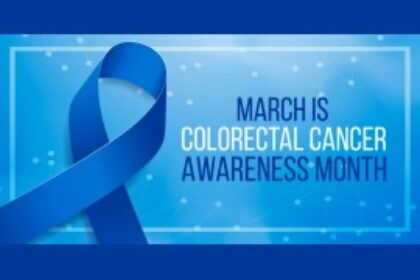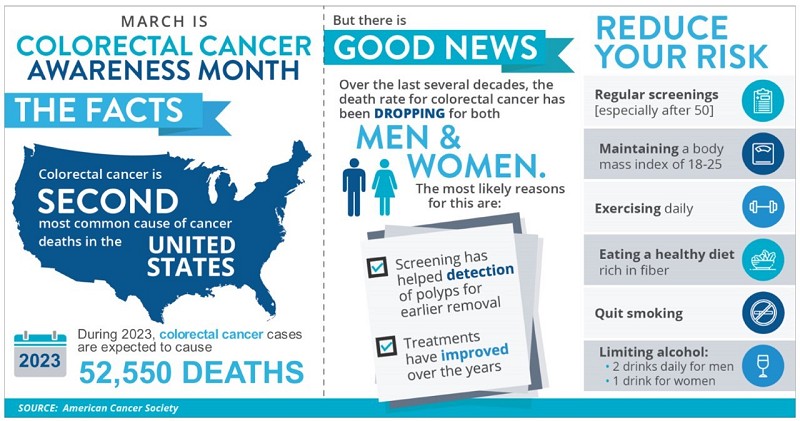
Colorectal Cancer Awareness Month is observed every March to raise awareness about colorectal cancer, its risk factors, and the importance of early detection and prevention. Awareness plays a crucial role in combating colorectal cancer by promoting screening tests like colonoscopies, which can detect precancerous polyps and early-stage cancers when they are most treatable. By increasing awareness, individuals are encouraged to take proactive steps, such as regular screenings, adopting a healthy lifestyle, and understanding their family history, to reduce their risk of developing colorectal cancer. Increased awareness also helps reduce the stigma associated with colorectal cancer, encourages open dialogue about symptoms, and emphasizes the importance of early intervention and support for individuals and families affected by this disease.
Colorectal cancer symptoms can vary depending on the stage of the disease. In the early stages, individuals may not experience any symptoms, so regular screenings are crucial for early detection. However, as the cancer progresses, common symptoms may include changes in bowel habits such as diarrhea or constipation, persistent abdominal discomfort or cramps, rectal bleeding or blood in the stool, unexplained weight loss, and fatigue. It’s important to note that these symptoms can also be caused by other conditions. Still, if they persist or worsen, it’s essential to consult a healthcare professional for evaluation and diagnosis. Screenings for colorectal cancer are recommended for individuals starting at age 45, or earlier if there is a family history of the disease or other risk factors. Screening options for individuals aged 45 to 75 include colonoscopies every ten years, annual fecal immunochemical tests (FIT) or high-sensitivity guaiac-based fecal occult blood tests (gFOBT), or flexible sigmoidoscopy every five years combined with FIT every three years. Individuals need to discuss their risk factors, family history, and screening options with their healthcare providers to determine the most appropriate screening schedule for their needs.




